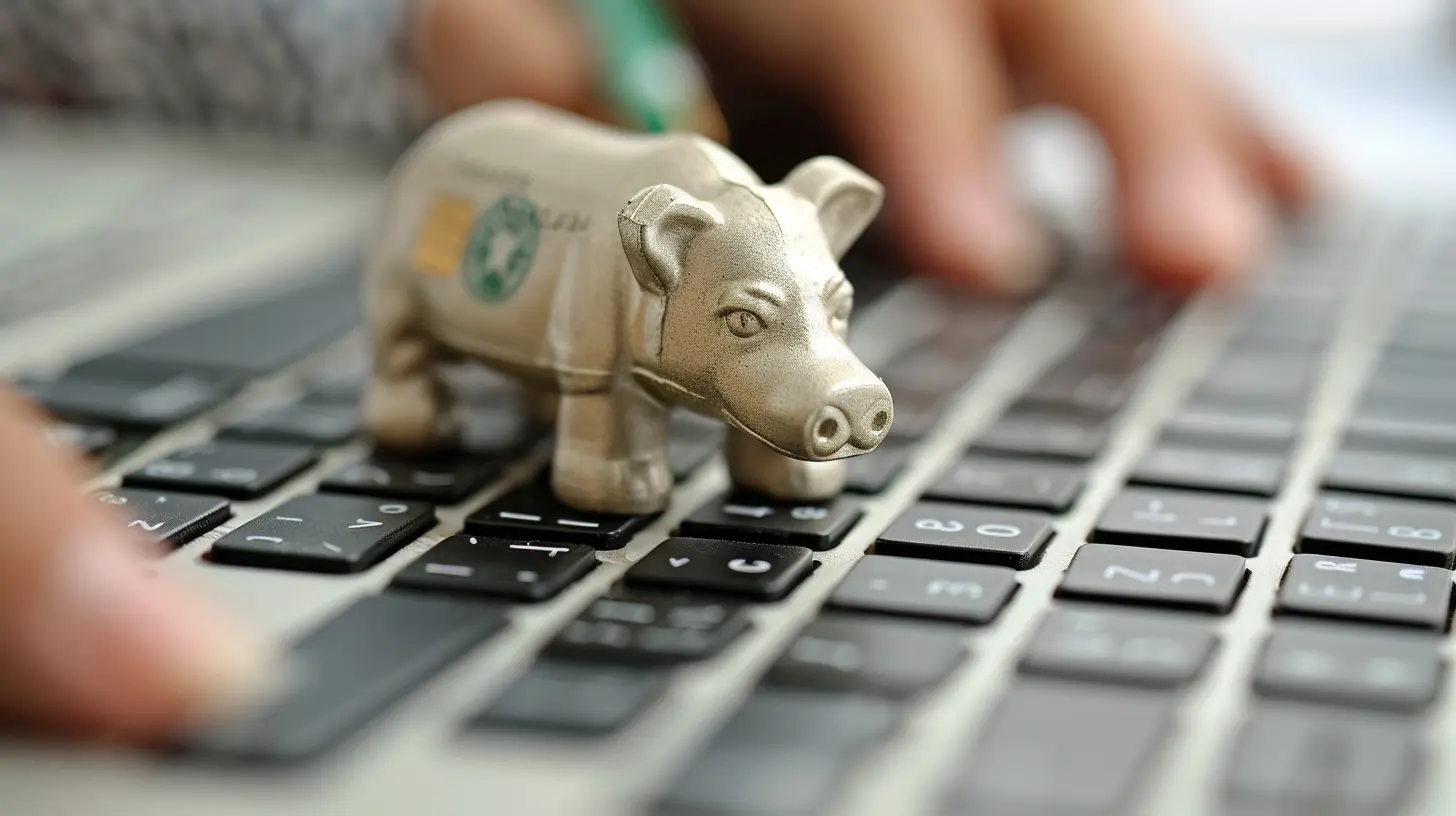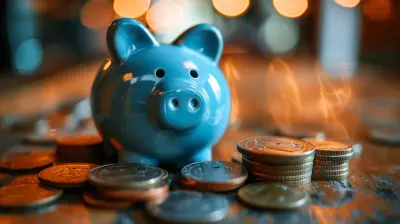Credit Cards: Friend or Foe?
31 August 2025
Credit cards are like a double-edged sword—on one side, they promise convenience and rewards, but on the other, they can lead to financial pitfalls if not used wisely. Some people swear by them, building credit and racking up cashback, while others see them as a debt trap waiting to happen.
So, are credit cards your financial ally or enemy? Let’s break it down and settle the debate once and for all. 
The Bright Side: Why Credit Cards Can Be Your Best Friend
Credit cards, when used responsibly, come with a whole bunch of perks. Here’s why they can be a valuable financial tool:1. Convenience at Its Best
Ever been caught in a situation where you needed to make a purchase but didn’t have cash on hand? Credit cards have your back. Whether you're booking flights, subscribing to streaming services, or making emergency purchases, they save the day.2. Build Your Credit Score
Your credit score is like your financial reputation—it tells lenders how trustworthy you are with money. Using a credit card and paying off the balance on time? That’s like giving your credit score a boost of confidence. A good credit score can unlock lower interest rates on loans, better mortgage deals, and even easier approval for renting a home.3. Rewards, Cashback, and Perks
Who doesn’t love free stuff? Many credit cards offer cashback on purchases, travel miles, or reward points that can be redeemed for goods and services. If you’re spending money anyway, why not get something back for it?4. Security and Fraud Protection
Unlike debit cards, credit cards offer stronger fraud protection. If someone makes an unauthorized purchase, most credit card companies allow you to dispute the charge and get your money back. Banks also monitor transactions for suspicious activity, providing an extra layer of security.5. Emergency Lifeline
Life happens—unexpected car repairs, medical expenses, or last-minute travel plans. When you’re short on cash, a credit card can serve as a financial cushion, giving you time to sort things out without immediate stress.
The Dark Side: When Credit Cards Turn Into a Foe
While credit cards have their benefits, they also come with risks. If not managed properly, they can lead to financial trouble. Here’s how:1. The Debt Trap
Ever heard of the phrase “easy to swipe, hard to pay back”? It’s easy to spend money with a credit card, but carrying a balance means you’re paying interest—sometimes at ridiculously high rates. If you only make the minimum payment, that small shopping spree could take years to pay off.2. High-Interest Rates
Some credit cards come with annual percentage rates (APRs) of 20% or higher. If you carry a balance, interest charges pile up fast, making it harder to escape the cycle of debt.3. Overspending Temptation
Credit cards give you a false sense of buying power. Since you’re not physically handing over cash, it’s easy to spend more than you actually can afford. Before you know it, you might find yourself drowning in unnecessary purchases.4. Hidden Fees and Penalties
Late payment fees, foreign transaction fees, balance transfer fees—the list goes on. If you’re not careful, these extra charges can add up, eating into your finances.5. Credit Score Damage
Just as credit cards can boost your credit score, they can also sink it. Late payments, maxed-out cards, and too many accounts can drag your credit score down, making future borrowing much more expensive.
So, Are Credit Cards Good or Bad?
The truth? Credit cards are neither inherently good nor bad—it all comes down to how you use them. Think of them like fire. In controlled situations, fire can cook your food, keep you warm, and light up the night. But left unchecked, it can burn everything down.If you manage credit cards wisely—paying off balances in full, avoiding unnecessary purchases, and staying on top of payments—they can work in your favor. But if you’re reckless, they can easily turn into a financial nightmare. 
Tips to Use Credit Cards Responsibly
To make sure credit cards remain your friend and not your worst enemy, follow these smart habits:1. Pay Your Balance in Full
Avoid interest charges by paying off your balance before the due date. If you can’t do this every month, aim to pay more than the minimum to reduce your debt faster.2. Stick to a Budget
Set a spending limit and treat your credit card like cash. If you wouldn’t buy something with physical money, don’t swipe your card for it.3. Know Your Interest Rates and Fees
Before signing up for a credit card, read the fine print. Understand the interest rates, penalties, and rewards structure so you’re not caught off guard.4. Monitor Your Spending
Most credit card providers have apps that let you track your spending in real time. Checking your transactions regularly can help you stay in control and spot any unauthorized activity.5. Limit the Number of Credit Cards
Having multiple cards can be tempting, but unless you’re highly disciplined, it’s easy to fall into debt. Stick to just one or two for better financial control.6. Never Max Out Your Credit Card
Try to keep your credit utilization low—ideally below 30% of your credit limit. This helps maintain a strong credit score and prevents financial strain.7. Set Up Auto-Pay for Minimum Payments
To avoid late fees and negative marks on your credit report, set up autopay for at least the minimum due amount. This ensures you never miss a payment.The Final Verdict
So, are credit cards a friend or a foe? The answer is—it depends on you. Used wisely, they’re an incredible financial tool that can help you build credit, earn rewards, and manage emergencies. Misused, they can spiral into overwhelming debt and financial stress.The key is self-control and smart money management. If you treat credit cards as a tool rather than free money, they can be your financial ally instead of your worst enemy.
So, what’s it going to be? A trusty sidekick or a foe to avoid? The choice is in your hands.
all images in this post were generated using AI tools
Category:
Financial EducationAuthor:

Zavier Larsen
Discussion
rate this article
1 comments
Sloan McNab
Credit cards can be both beneficial and detrimental. When used wisely, they offer convenience, rewards, and credit building. However, high-interest rates and potential debt pitfalls make responsible usage crucial. Always pay on time and keep balances low to maximize benefits and minimize risks.
September 13, 2025 at 1:02 PM

Zavier Larsen
Thank you for your insightful comment! You've highlighted the essential balance of using credit cards wisely to enjoy their benefits while avoiding debt pitfalls.


